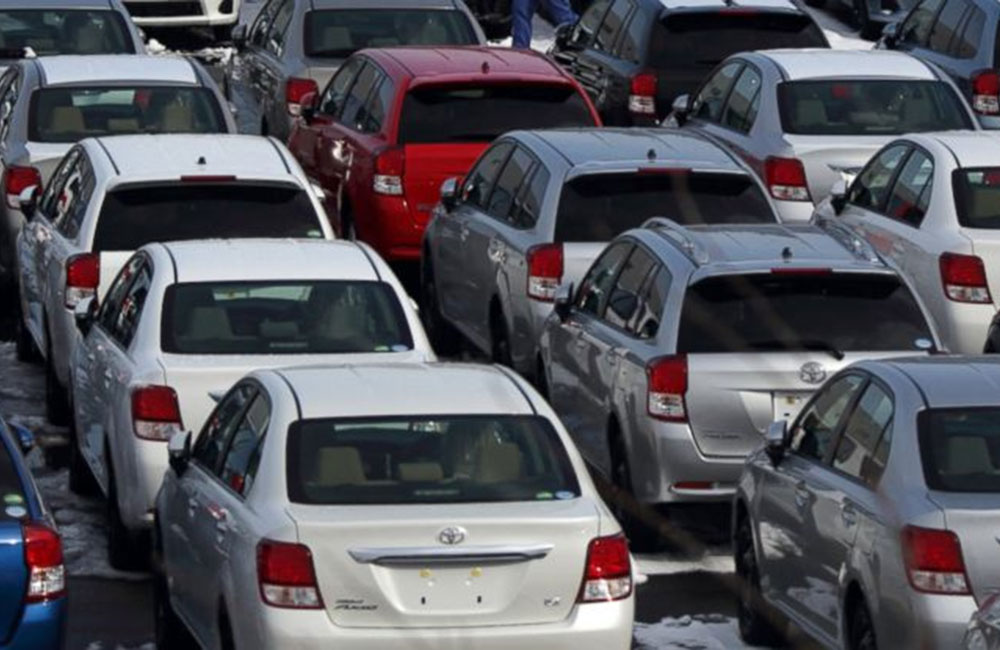Sri Lanka is facing a complex crossroads in its automobile import policy that could significantly alter the country’s economic landscape.
The Vehicle Importers Association of Sri Lanka (VIASL), led by Chairman Prasad Manage, has warned that vehicle prices across the board may “increase beyond affordable limits” if the government proceeds with a proposed 15 per cent tax on vehicle imports after the 2026 Budget.
At the heart of the issue is the removal of an import-valuation discount: currently, duties and taxes are applied to only 85 per cent of a vehicle’s export-country value because importers receive a 15 per cent deduction.
Manage says this concession has been in place since 2015, and that the government may remove it, which would immediately trigger steep price increases even for modest models.
Manage’s comments highlight how import duties are computed: based on the vehicle’s value in the exporting country after deducting all consumable taxes. If the 15 per cent deduction disappears, that higher base will translate into higher duty and tax bills.
For instance, a compact Suzuki Wagon R might see its price hike by about Rs 400,000, while a high-end Toyota Land Cruiser could jump by at least Rs 3 million.
The proposed tax reform also reportedly intends to unify the duty structure for brand-new and used-vehicle imports, which would have knock-on effects across the market in terms of pricing, demand, and foreign-exchange outflows.
From a macro-economic perspective the push and pull is significant. On one side, vehicle import duties have become a meaningful source of tax revenue: in 2025, the Sri Lanka Customs collected approximately Rs 165 billion (about US$ 550 million) from vehicle import taxes by mid-June, with the expectation of about Rs 450 billion for the full year.
According to analysts from BMI Research/Fitch, tax revenue from vehicle imports could contribute roughly 1.8 per cent of GDP in 2025up from 1.3 per cent in 2019.
On the flip side, however, the easing of vehicle import restrictions since early 2025 has triggered a rapid escalation in foreign-exchange outflows. In just five months after the ban was lifted, vehicles accounted for about US$ 742 million in letters of credit (LCs).
The government and central bank have raised alarms that such outflows risk depleting foreign-exchange reserves and endangering imports of fuel and other essentials.
The tension is palpable: the state needs additional tax revenue to meet fiscal targets—under the International Monetary Fund-supported reform programme, revenue mobilization is considered critical for debt sustainability.
But at the same time, the outflow of foreign currency associated with vehicle imports threatens macro-economic stability. The government and regulators are reportedly planning tighter monitoring mechanisms to control the pace of vehicle imports and ensure that foreign-exchange drain remains within manageable bounds.
Moreover, critics argue that relying so heavily on border taxes especially on vehicles, a luxury consumption category raises questions about equity, competitiveness, and long-term industrial policy. The reform appears to be a delicate balancing act: increasing duties and taxes to raise revenue and slow import-driven FX outflows, while avoiding a sharp contraction in demand or a surge in unofficial channels.
For buyers and the auto-industry alike, the implications are immediate: higher vehicle prices, uncertainty about future import regulations, and potential shifts in consumption patterns. For the economy, the broader consequences hinge on whether policies are calibrated to protect foreign reserves, maintain fiscal momentum, and yet not stifle legitimate domestic demand and investment in the auto sector. As the Budget 2026 deliberations approach, all eyes will be on how the government rationalizes the vehicle import tax regime, the valuation discount, and the dual imperatives of revenue generation and FX conservation.

Leave your comments
Login to post a comment
Post comment as a guest